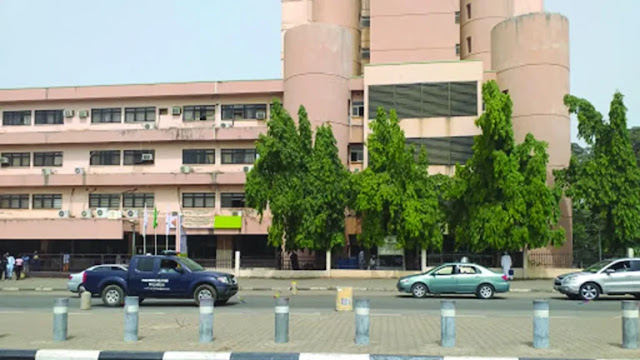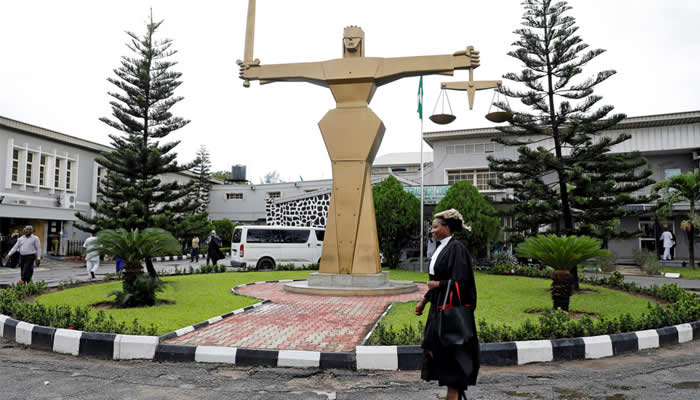In a landmark decision that has sparked both hope and debate, the Federal Government of Nigeria has announced a seven-year moratorium on the establishment of new universities, polytechnics, and colleges of education. This policy shift, described by many as long overdue, represents a critical acknowledgment of the systemic failures that have plagued Nigeria’s tertiary education sector for decades. The unchecked proliferation of institutions, often driven by political motives rather than educational imperatives, has left the sector in a state of decay, characterized by chronic underfunding, dilapidated infrastructure, and a profound loss of public confidence. While the suspension of new institutions is a step in the right direction, it is merely the beginning of a much-needed overhaul to restore Nigeria’s tertiary education system to its former glory and ensure its relevance in the 21st century.
The Proliferation Problem: A Legacy of Misguided Priorities
For decades, Nigeria’s tertiary education sector has been marked by an aggressive expansion that, on the surface, appears to signal progress. The country currently boasts over 270 universities, nearly 300 polytechnics, and more than 200 colleges of education. These numbers, while impressive at first glance, mask a deeper crisis. Many of these institutions are little more than hollow shells, lacking the resources, infrastructure, and academic rigor necessary to deliver quality education. The rapid growth in the number of tertiary institutions has not been accompanied by corresponding investments in facilities, faculty, or funding, resulting in a system that is overstretched and underperforming.
The roots of this problem lie in a combination of political opportunism and misplaced priorities. Successive governments have treated the establishment of new universities as a tool for political patronage, creating institutions to curry favor with constituents or to leave a “legacy” for elected officials. Federal lawmakers and state governors have championed the creation of universities, polytechnics, and colleges of education in their constituencies, often without regard for the long-term sustainability of these institutions. The result is a landscape littered with underfunded campuses that lack basic amenities such as electricity, functional laboratories, or up-to-date libraries.
The Federal Ministry of Education’s data paints a grim picture of the consequences of this unchecked expansion. In the last academic year, 199 universities received fewer than 100 applications through the Joint Admissions and Matriculation Board (JAMB), while 34 universities attracted no applicants at all. Similarly, 295 polytechnics recorded fewer than 99 applicants, and many colleges of education have been reduced to ghost towns, with empty classrooms and dwindling enrollment. These figures are not just numbers; they reflect a profound erosion of public trust in the tertiary education system. Nigerian students and their families are increasingly opting out of institutions they perceive as incapable of delivering meaningful education.
A National Tragedy: The Decline of a Once-Proud System
The decline of Nigeria’s tertiary education system is nothing short of a national tragedy. In the mid-20th century, Nigerian universities such as the University of Ibadan and Ahmadu Bello University were among the most respected in Africa, attracting students and scholars from across the continent and beyond. These institutions were beacons of academic excellence, producing graduates who excelled in various fields and contributed significantly to national development. Today, however, the story is starkly different. Many of Nigeria’s tertiary institutions are in a state of disrepair, with crumbling infrastructure, outdated curricula, and a lack of resources that undermines their ability to function effectively.
Lecture halls across the country are often overcrowded, with students forced to sit on broken chairs or stand during classes. Laboratories, where they exist, are frequently ill-equipped, lacking the tools and materials needed for practical training. Libraries, once the heart of academic institutions, are stocked with outdated books and journals, rendering them irrelevant in an era of rapid technological and intellectual advancement. Student accommodations are equally dire, with hostels often overcrowded, poorly maintained, and lacking basic amenities such as running water and electricity.
The human toll of this decay is equally devastating. Lecturers, the backbone of any academic institution, are grappling with poor pay, limited access to research funding, and a lack of professional development opportunities. Morale among academic staff has plummeted, leading to a cycle of disillusionment and disengagement. The Academic Staff Union of Universities (ASUU) has been at the forefront of advocating for better conditions, staging no fewer than 16 strikes since 1999 to demand improved funding, better salaries, and enhanced infrastructure. The Academic Staff Union of Polytechnics (ASUP) has similarly issued ultimatums, highlighting the shared grievances across the tertiary education sector. These industrial actions, while necessary to draw attention to the crisis, have disrupted academic calendars, leaving students stranded and further eroding confidence in the system.
Chronic Underfunding: The Root of the Crisis
At the heart of Nigeria’s tertiary education crisis lies a chronic lack of funding. The United Nations Educational, Scientific and Cultural Organization (UNESCO) recommends that countries allocate 15 to 20 percent of their national budgets to education to ensure sustainable development. Nigeria, however, consistently falls far short of this benchmark, allocating only a fraction of its budget to the sector. In 2023, for example, education received less than 8 percent of the national budget, a figure that pales in comparison to the needs of a country with a rapidly growing population and an urgent demand for skilled professionals.
Instead of addressing this funding gap, successive governments have prioritized the creation of new institutions, often at the expense of existing ones. The current administration, despite its reformist rhetoric, has not been immune to this temptation. In just two years, it has established or upgraded 14 universities, three polytechnics, and a federal polytechnic named after the president himself. Proposals for 10 additional colleges of education are also under consideration. These actions, while politically expedient, are unsustainable given the dire state of existing institutions. A university without laboratories, qualified faculty, or adequate funding is little more than a symbolic gesture, offering no real value to students or society.
The consequences of this underfunding are far-reaching. Nigerian graduates are increasingly perceived as “half-baked,” lacking the skills and knowledge required to compete in a globalized economy. Employers frequently lament the inability of degree holders to write clearly, think critically, or apply their training to real-world challenges. This perception is not a reflection of the inherent capabilities of Nigerian youth but rather a damning indictment of a system that has failed to equip them for success. The disconnect between academic training and industry needs has created a generation of graduates who struggle to find meaningful employment, exacerbating Nigeria’s already high unemployment rate.
The Exodus of Talent and Resources
The decline of Nigeria’s tertiary education system has driven a significant exodus of students and financial resources. Parents, frustrated by the state of public institutions, are increasingly turning to private universities or foreign institutions to secure quality education for their children. This trend comes at a steep cost, both financially and socially. The financial burden of private or foreign education is immense, with families often sacrificing significant portions of their income to cover tuition fees, travel expenses, and living costs abroad. In 2022 alone, it was estimated that Nigerians spent over $2 billion on foreign education, a colossal drain on the country’s economy.
This exodus is not only a loss of financial resources but also a loss of human capital. Many Nigerian students who study abroad do not return, contributing to a brain drain that deprives the country of its brightest minds. Those who remain in Nigeria and attend private institutions often face similar challenges, as many private universities, while better funded than their public counterparts, still struggle to meet global standards. The result is a vicious cycle in which Nigeria’s education system fails to produce the skilled workforce needed for national development, while the country’s resources are siphoned off to support foreign institutions.
A Welcome Moratorium: A Step Toward Reform
The Federal Government’s decision to suspend the creation of new tertiary institutions for seven years is a welcome acknowledgment of the need for change. This moratorium represents a shift away from the short-sighted policies of the past and an opportunity to focus on consolidating and revitalizing existing institutions. However, the success of this policy will depend on its implementation and the government’s ability to resist political pressures to reverse course.
To ensure the moratorium’s effectiveness, it should be enshrined in legislation and extended beyond the proposed seven years. A 20-year ban on new institutions would provide the stability needed to undertake meaningful reforms without the distraction of politically motivated expansion. Such a policy would signal to stakeholders that the government is committed to prioritizing quality over quantity and addressing the root causes of the sector’s decline.
Beyond the Moratorium: A Roadmap for Reform
While the suspension of new institutions is a critical first step, it is not a panacea. Nigeria’s tertiary education system requires a comprehensive strategy to address its myriad challenges and restore its reputation as a hub of academic excellence. This strategy must encompass several key areas:
Increased Funding and Resource Allocation: The government must significantly increase its budgetary allocation to education, moving closer to UNESCO’s recommended 15 to 20 percent. These funds should be directed toward upgrading infrastructure, equipping laboratories, modernizing libraries, and improving student accommodations. Transparent and accountable mechanisms must be put in place to ensure that funds are used effectively and reach the institutions that need them most.
Faculty Development and Welfare: Lecturers and academic staff are the backbone of any education system, and their welfare must be prioritized. The government should address longstanding grievances related to salaries, research funding, and professional development opportunities. Competitive remuneration and access to international training programs can help retain talent and boost morale, reducing the frequency of industrial actions.
Curriculum Modernization: The curricula of Nigerian universities, polytechnics, and colleges of education must be updated to reflect the demands of the 21st-century economy. This includes incorporating technology, entrepreneurship, and critical thinking skills into academic programs. Polytechnics, in particular, should be repositioned as centers of technical excellence, producing graduates with practical skills that meet industry needs.
Reviving Research Culture: Nigerian universities were once known for their contributions to research and innovation, but this culture has been eroded by a lack of funding and infrastructure. The government should establish research grants and partnerships with private sector organizations to support cutting-edge research. Collaboration with international institutions can also help Nigerian academics stay at the forefront of global knowledge production.
Strengthening Polytechnics and Colleges of Education: While universities often dominate discussions about tertiary education, polytechnics and colleges of education play a critical role in producing the skilled workforce needed for national development. These institutions should be revitalized through targeted investments and public awareness campaigns that highlight their importance. By elevating the status of technical and vocational education, Nigeria can address its skills gap and reduce unemployment.
Public-Private Partnerships: The government alone cannot bear the burden of reforming the education sector. Public-private partnerships can play a crucial role in mobilizing resources, expertise, and innovation. Private sector organizations can support infrastructure development, provide scholarships, and collaborate on curriculum design to ensure that graduates are equipped for the job market.
Addressing the Brain Drain: To stem the exodus of students and professionals, Nigeria must create an environment that encourages talent retention. This includes improving the quality of education, creating job opportunities, and fostering a culture of innovation and entrepreneurship. Incentives such as scholarships, research grants, and startup funding can help keep Nigeria’s brightest minds at home.
The Role of Stakeholders
Reforming Nigeria’s tertiary education system is not the responsibility of the government alone. All stakeholders—students, parents, academics, private sector actors, and civil society—have a role to play. Students must advocate for their rights and hold institutions accountable for delivering quality education. Parents should support efforts to improve public institutions rather than relying solely on private or foreign alternatives. Academics must commit to excellence in teaching and research, while the private sector can contribute through partnerships and investments. Civil society organizations can serve as watchdogs, ensuring that reforms are implemented transparently and effectively.
The Cost of Inaction
The stakes could not be higher. A nation that fails to educate its youth is sowing the seeds of its own decline. Education is the engine of development, driving economic growth, social progress, and national stability. Without a functional tertiary education system, Nigeria risks producing generations of graduates who are ill-equipped to compete in a globalized world. This, in turn, will perpetuate poverty, unemployment, and social unrest, undermining the country’s aspirations for development.
The financial cost of inaction is equally staggering. The billions of naira spent on foreign education each year represent a missed opportunity to invest in Nigeria’s own institutions. By redirecting these resources toward rebuilding the tertiary education system, Nigeria can create a virtuous cycle of investment, innovation, and growth.
A Vision for the Future
Nigeria’s tertiary education system has the potential to reclaim its status as a leader in Africa and beyond. By prioritizing quality over quantity, depth over spread, and competence over cosmetic expansion, the country can build institutions that produce graduates who are globally competitive and capable of driving national development. The moratorium on new institutions is a critical first step, but it must be followed by bold, sustained, and transparent reforms.
The government’s decision to halt the creation of new universities, polytechnics, and colleges of education is a rare moment of clarity in a sector long plagued by shortsightedness. It is an opportunity to break the cycle of proliferation and focus on building a system that serves the needs of Nigeria’s youth and the aspirations of the nation. Education is not a political trophy to be brandished for votes; it is a matter of survival, a foundation upon which the future of Nigeria rests.
As the country embarks on this journey of reform, it must remain steadfast in its commitment to excellence. The road ahead will not be easy, but the rewards—a revitalized education system, a skilled workforce, and a prosperous nation—are worth the effort. Nigeria’s leaders, stakeholders, and citizens must seize this moment to build a tertiary education system that is not only functional but also a source of pride for generations to come.









